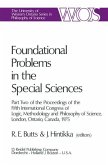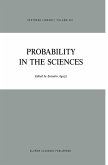Science is a dynamic process in which the assimilation of new phenomena, perspectives, and hypotheses into the scientific corpus takes place slowly. The apparent disunity of the sciences is the unavoidable consequence of this gradual integration process. Some thinkers label this dynamical circumstance a 'crisis'. However, a retrospective view of the practical results of the scientific enterprise and of science itself, grants us a clear view of the unity of the human knowledge seeking enterprise. This book provides many arguments, case studies and examples in favor of the unity of science. These contributions touch upon various scientific perspectives and disciplines such as: Physics, Computer Science, Biology, Neuroscience, Cognitive Psychology, and Economics.
From the reviews:
"The volume at hand ... covers a wide range of special sciences from astronomy and physics to Freudian theory and the cultural sciences. ... essays collected in this volume are of interest to philosophers working in these areas. The approach taken in this book fits within the broader context of bringing fresh ideas to an old debate. ... The papers contain an interesting balance between scientific depth and philosophical speculation on how the unity of the sciences might work in some actual cases ... ." (Hinne Hettema, Philosophy in Review, Vol. XXXIII (4), 2013)
"The volume at hand ... covers a wide range of special sciences from astronomy and physics to Freudian theory and the cultural sciences. ... essays collected in this volume are of interest to philosophers working in these areas. The approach taken in this book fits within the broader context of bringing fresh ideas to an old debate. ... The papers contain an interesting balance between scientific depth and philosophical speculation on how the unity of the sciences might work in some actual cases ... ." (Hinne Hettema, Philosophy in Review, Vol. XXXIII (4), 2013)








